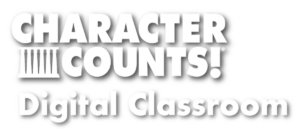One of the hardest transitions from elementary to middle school, is the change in friendships that can occur. Going from playdates arranged by parents to a diverse pool of unfamiliar faces can be hard for some to adjust to. The emotions and hormonal changes alone will affect your adolescent child’s understanding of relationships. Middle schoolers will experience changing and complex sets of relationship rules and will form new boundaries. Thus, there will be a new term that may enter your home this year, “Frenemies.”
This is when friends seem to morph into enemies, and your child will be confused and saddened by this change in the relationship. This change can happen in a variety of ways as they learn more about who they are and start to seek groups to belong to. Their friends may laugh along with a cruel joke or make fun, so they are part of the “in” crowd. Some of these behaviors are due to the inability of some to navigate the new middle school culture or environment. Although you may feel powerless to help at times, think PALS to assist in navigating and creating healthy relationships in middle school.
- Prepare them
- Help them to recognize that friendships change and evolve as you grow older.
- Accept them-
- Help them feel accepted and loved as the person they are and praise their uniqueness as a person
- Listen to them-
- When they are struggling with a friend, listen, and let them share their thoughts and feelings.
- Strategize with them-
- Brainstorm ideas or strategies for solving conflict and friendship dilemmas.
Utilizing PALS will help your child to see friendships and relationships as ever evolving opportunities to learn and grow. Supplying them with opportunities to accept and embrace their own unique and wonderful qualities can help them to see other people’s individual talents and gifts as well. As a parent, you can give your child a safe space to share his or her feelings and they can build trust and respect for you in the process. Although, we want to swoop in and solve problems for our children we must let them learn to problem-solve. So, help them with this life-long skill by working together to discover strategies that can build lasting, complex, and meaningful friendships.


